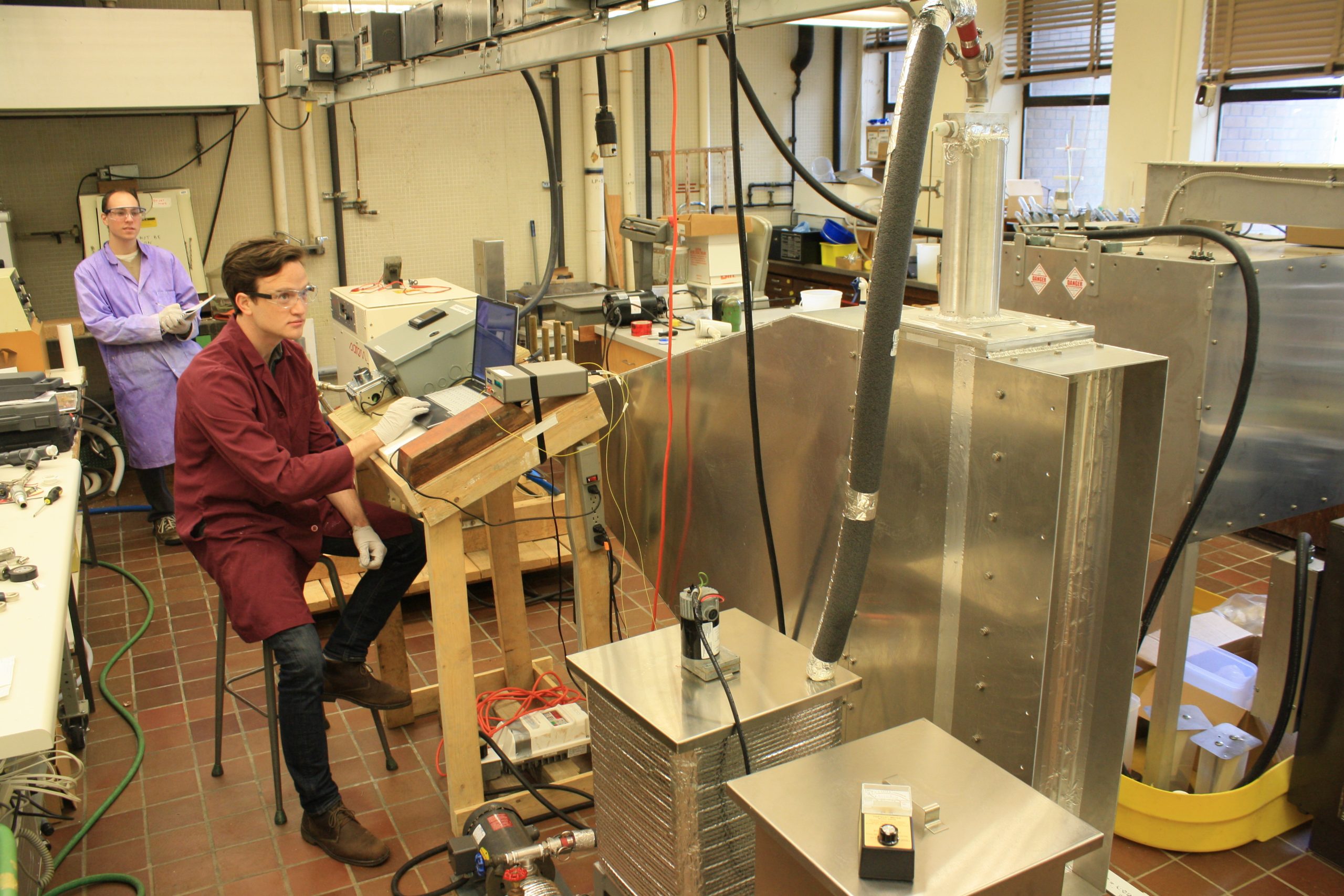Dr. K. Victor Lo’s team of graduate students, research associates, and postdoctoral fellows in Civil are approaching pre-commercialization of their “sludge-busting” microwave technology for sustainable waste management in the wastewater treatment industry.
The microwave enhanced advanced oxidation process (MW/H2O2) is a patented technology developed by Dr. K.V. Lo’s research team at the UBC’s Civil Engineering Department. The MW/H2O2 uses microwave irradiation, in combination with hydrogen peroxide to react with organic slurries. As a result, the suspended solids content of the slurries is reduced and nutrients are released into solution during the process. The uniqueness of the MW/H2O2 “sludge busting” technology is that it can be easily adapted into an existing wastewater treatment process stream making other processes in the stream more efficient. For example, more solubilized nutrients (P and N) could potentially double the struvite production, a slow release fertilizer, from a subsequent struvite crystallization process. The production of large quantity of short-chained volatile fatty acids would allow for a faster methane (biogas) production rate; i.e., bypassing the fermenters and go directly to the methane phase. The released carbonaceous products can serve as a carbon source in the biological phosphorus removal process, reducing the need to purchase methanol as carbon source. The MW/H2O2 system is targeted towards a ‘zero sludge’ wastewater treatment system.
The MW/H2O2 process will economically benefit the wastewater treatment industry by reducing sludge volume and its associated disposal costs, generate saleable products and recover energy. In addition, the MW/H2O2 process will have a substantial positive environmental impact on the society by preventing eutrophication of water bodies and excess nutrient build up in soil. If the MW/H2O2 technology can be fully implemented, it will give way to a sustainable waste management system for the wastewater treatment industry.
Research on MW/H2O2 has been carried out for the past eleven years by Dr. K.V. Lo’s team at UBC. Seventeen MASc/PhD students and several post doctoral/research fellows have worked on the MW/H2O2 project. In the previous years, the focus was on developing the technology from lab scale in to a pilot scale continuous flow microwave system. Currently the research team is focusing on optimizing a 5 kW industrial frequency microwave system to a pre-commercialization stage, set up at the UBC main campus. Two graduate students, Sam Bailey and Jeff MacSween are involved in testing and operation of the new pilot scale facility. Two research associates Fred Koch and P.H. Liao and a post doctoral fellow Asha Srinivasan are also involved in the research work.
